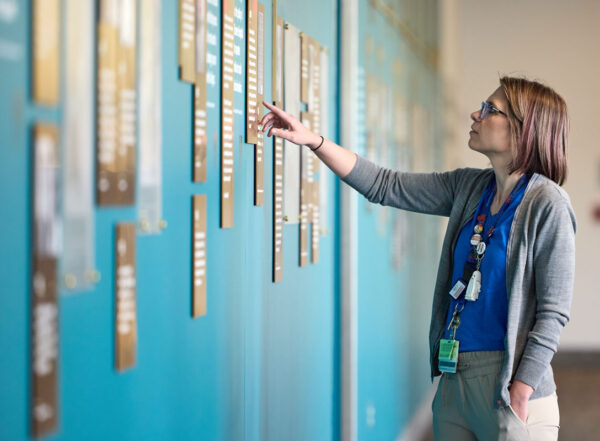Obituary: Eduardo Slatopolsky, emeritus professor of medicine, 89
A giant in nephrology, the physician-scientist profoundly impacted his field

Slatopolsky
Eduardo Slatopolsky, MD, a pioneering physician-scientist and an emeritus professor of nephrology at Washington University School of Medicine in St. Louis, died peacefully Wednesday, April 24, 2024, at Barnes-Jewish Hospital. He was 89.
Slatopolsky served for three decade as director of the Chromalloy American Kidney Center on the Medical Campus. In that and related roles, he had a profound impact on the lives of countless patients and colleagues, and leaves behind a legacy of major contributions to his field.
Born in Buenos Aires, Argentina, Slatopolsky became fascinated by the kidney early on, deciding in his second year of medical school that he would become a nephrologist. He earned his medical degree from the University of Buenos Aires and completed his residency at Mt. Sinai Hospital in Cleveland. During an elective rotation at the Cleveland Clinic, he worked with Willem Kolff, MD, the inventor of hemodialysis. It was during this time that Slatopolsky read a scientific paper by Neal Bricker, MD, titled “An Exposition of the Intact Nephron Hypothesis.” Enthralled by this hypothesis, he wrote to Bricker, chief of nephrology at Washington University, and asked to join his research team. Slatopolsky recalled that the day Bricker agreed to take him on as a fellow was “one of the happiest days of my life.”
Slatopolsky arrived in St. Louis in 1963 and remained at Washington University his entire career, maintaining an active research laboratory for over 50 years. His research focused on the complex interplay between mineral metabolism and kidney function. His groundbreaking work paved the way for significant advancements in the treatment of kidney diseases, particularly in the management of secondary hyperparathyroidism in patients with chronic kidney disease. He designed and served as the inaugural director of the Chromalloy American Kidney Center, the first chronic dialysis center in St. Louis. The center remains in operation today.
Beyond his contributions to the scientific community, Slatopolsky was revered as a mentor and educator, shaping the minds of future generations of physicians and researchers.
“Dr. Slatopolsky’s passion for science and his unwavering commitment to excellence inspired all who had the privilege of learning from him,” said Victoria J. Fraser, MD, head of the Department of Medicine at Washington University and the Adolphus Busch Professor of Medicine. “Long after he retired, he continued to participate in medicine and nephrology grand rounds, and engaged with faculty and trainees at conferences, including in recent weeks.”
Slatopolsky’s legacy extends far beyond the laboratory and lecture hall. He also will be remembered for his kindness, his joie de vivre and his devotion to his wife of 52 years, Judith, who died in 2012. The couple hosted generations of nephrology faculty, staff and trainees in their home, where they held celebrated dance parties under their disco ball, teaching their guests salsa dancing.
He is survived by his three adult children, Diana (Ricardo Kohn), Daniel (Lucila Broide), and Andrea (Morten Olrik); and six grandchildren.
A funeral was held Sunday, April 28, at New Mt. Sinai Cemetery in St. Louis. A celebration of his life will be held at a future date.
Memorial contributions may be made to the Nephrology Division at Washington University School of Medicine for the Eduardo Slatopolsky Lectureship, the Eduardo Slatopolsky endowed professorship, or the Chromalloy American Kidney Center patient fund. Contributions may be made online, or mailed to MSC 1082-414-2555; Washington University; 1 Brookings Drive; St. Louis, Mo. 63130-9989.







